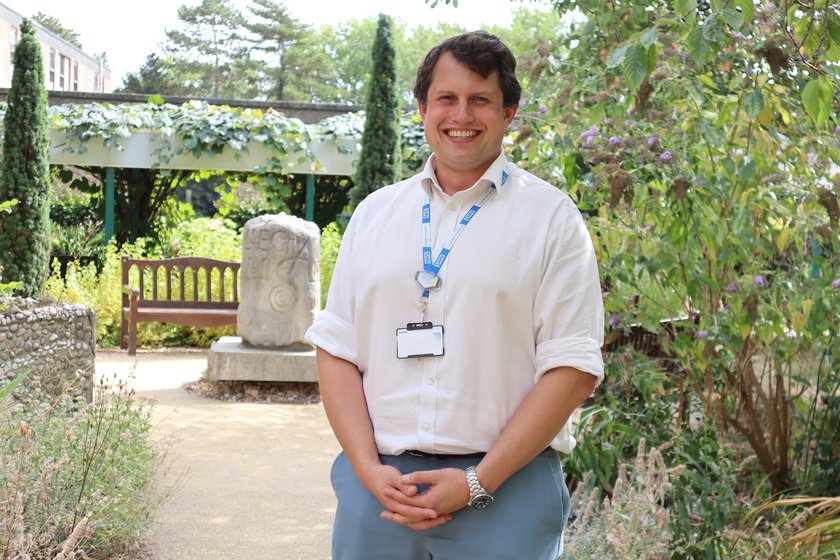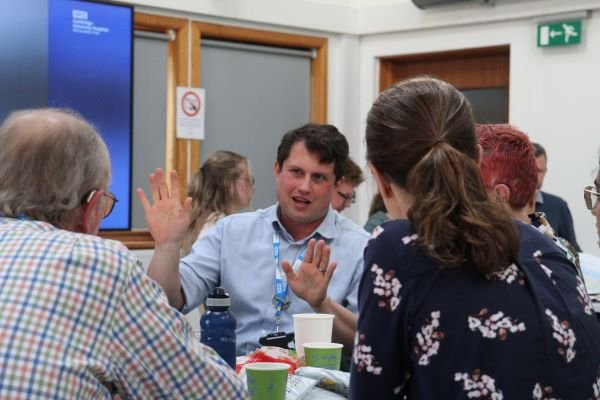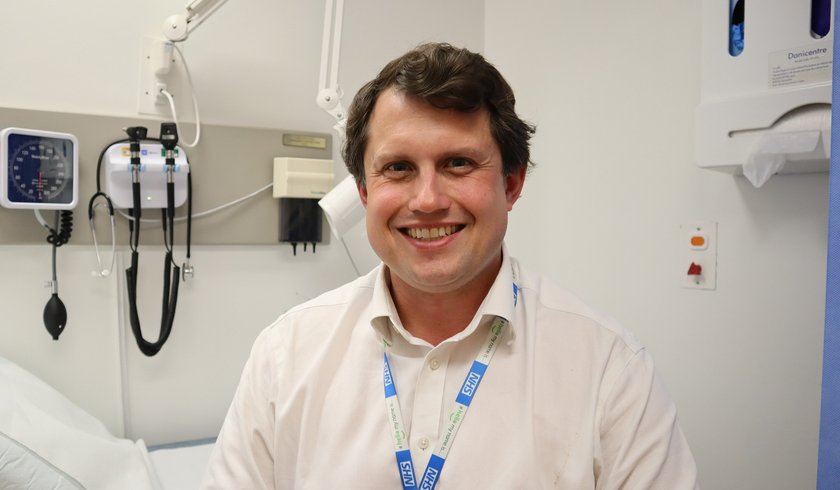Henno Martin is a consultant oncologist at Cambridge University Hospitals. He is also the inpatient model of care lead for Cambridge Cancer Research Hospital. We discuss his involvement in the project, the fulfilling parts of his job, and why we need a specialist cancer research hospital for the East of England.

Tell us more about your role, and what a typical day looks like for you?
I look after patients with prostate, bladder and breast cancers. I spend most of my time in our outpatient clinics, seeing both new and follow-up patients. I also do the inpatient ward rounds and spend quite a lot of my time planning radiotherapy treatments.
How did you come to work in cancer services?
I am originally from Germany, but I completed an undergraduate medical degree in Cambridge, a clinical degree in Oxford, and then did my specialist clinical training across the Thames Valley Deanery. I joined Cambridge University Hospitals in 2017, progressing from a clinical research training fellow to a consultant role, which I started full-time in March 2025.
What inspired you to do the job that you do?
I’ve always been fascinated with the technical aspects of curing cancer. For a long time, I wanted to be a surgeon. But my first oncology work attachment in Oxford opened my eyes to the technical possibilities of cancer treatment beyond the operating theatre. Radiotherapy, in particular, fascinated me. I felt like it was an opportunity to deliver life-changing cancer care without the constraints of surgery.
What’s your involvement been so far in the Cambridge Cancer Research Hospital project?
I’ve been leading on the development of our Target Operating Model (TOM) of care for our future inpatients which will be anyone admitted overnight at Cambridge Cancer Research Hospital. For example, this work includes trying to develop ways of keeping patients feeling connected to the outside world and making sure they don’t feel isolated, as we will have single en-suite rooms in the new facility. Another exciting part of our plans is developing a cancer specific ‘virtual ward’ for patients, once they are physically fit enough to recover at home with their families. We’re looking into how this will work in practice, for example, how patients can be safely monitored remotely through ‘wearables’ like blood pressure wristwatches etc.

Why do we need a specialist cancer research hospital for the East of England?
Cancer services have expanded massively over the last 10-15 years, and treatment options have been revolutionised. Many patients who in the past were diagnosed with cancer – including those told they only have a few months to live - can now live cancer-free for decades, and potentially even be cured. Cambridge Cancer Research Hospital will accelerate research into clinical care and bring more life-saving treatments to patients across the region, the UK and the world. The facility will create a unique community of scientists and clinicians working together under one roof on the Cambridge Biomedical Campus, Europe’s largest life sciences cluster.
What’s the most fulfilling part of the job?
The honesty and trust shared between consultants and patients. I really value the opportunity to develop individualised treatment plans that respect each patient’s background and preferences. I find fulfilment in helping patients navigate difficult moments, such as discussing disease progression and tailoring care so patients can attend big life milestones. It’s humbling to be able to look at treatments like painkillers or radiotherapy that might enable a dad to walk their daughter down the aisle on that special day.
What does the future of cancer care look like to you?
I think there are some really exciting developments on the horizon with advances like bispecific antibodies, cellular therapies, and more precise radiotherapy techniques that reduce treatment times and side effects. These innovations can help support patients to live longer, have better quality lives but also give us the hope of curing metastatic disease.
What’s it been like to have patients so involved in the design of the new Cambridge Cancer Research Hospital?
It’s incredibly important to have patients right at the heart of co-designing our new hospital, helping doctors understand what is important for them. Cambridge Cancer Research Hospital aims to strengthen links with district general hospitals, ensuring that expertise and specialist care reaches those who need it, wherever they are. We have also engaged with patients from across the region and different community groups, to ensure the new hospital is a welcoming and inclusive space.
